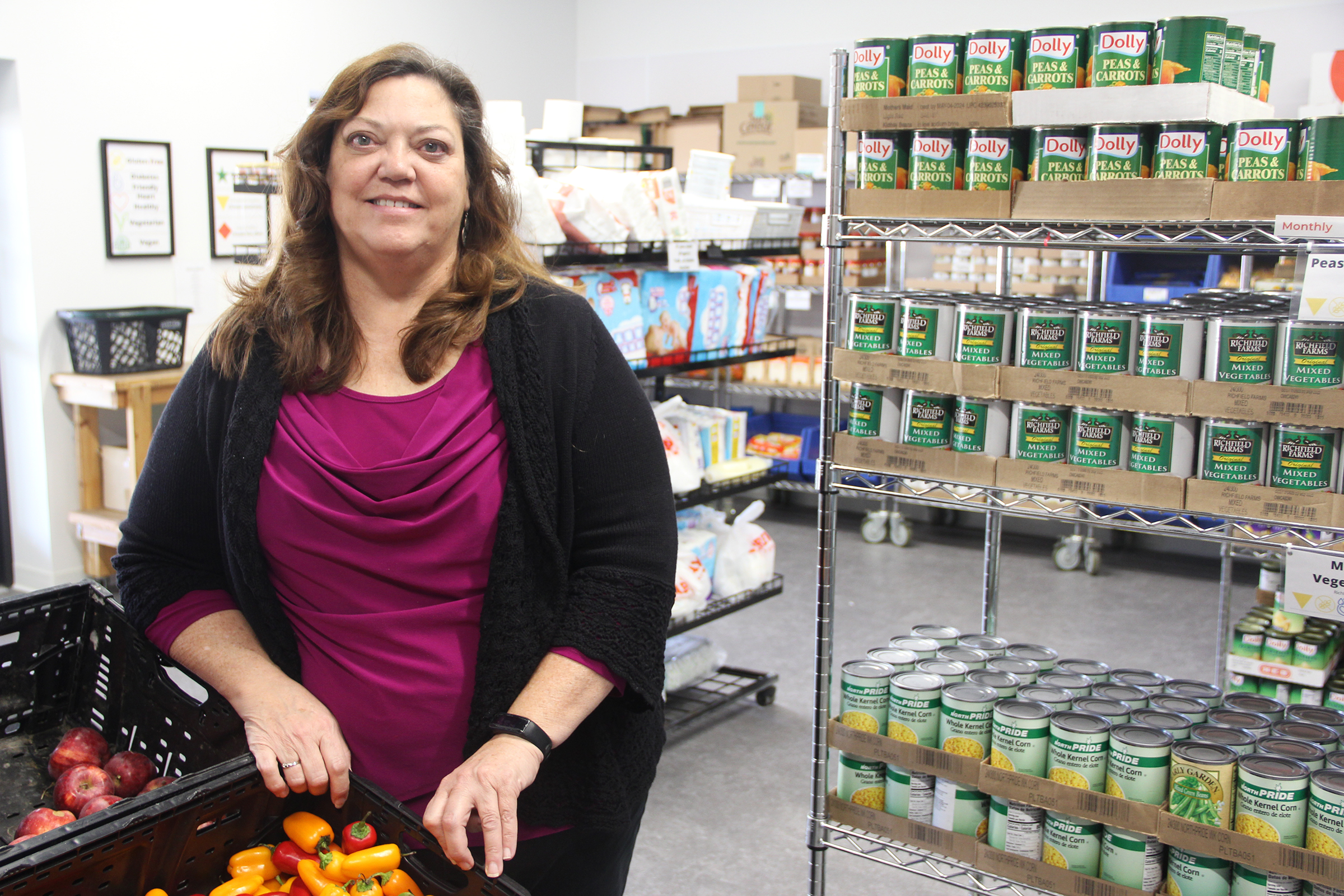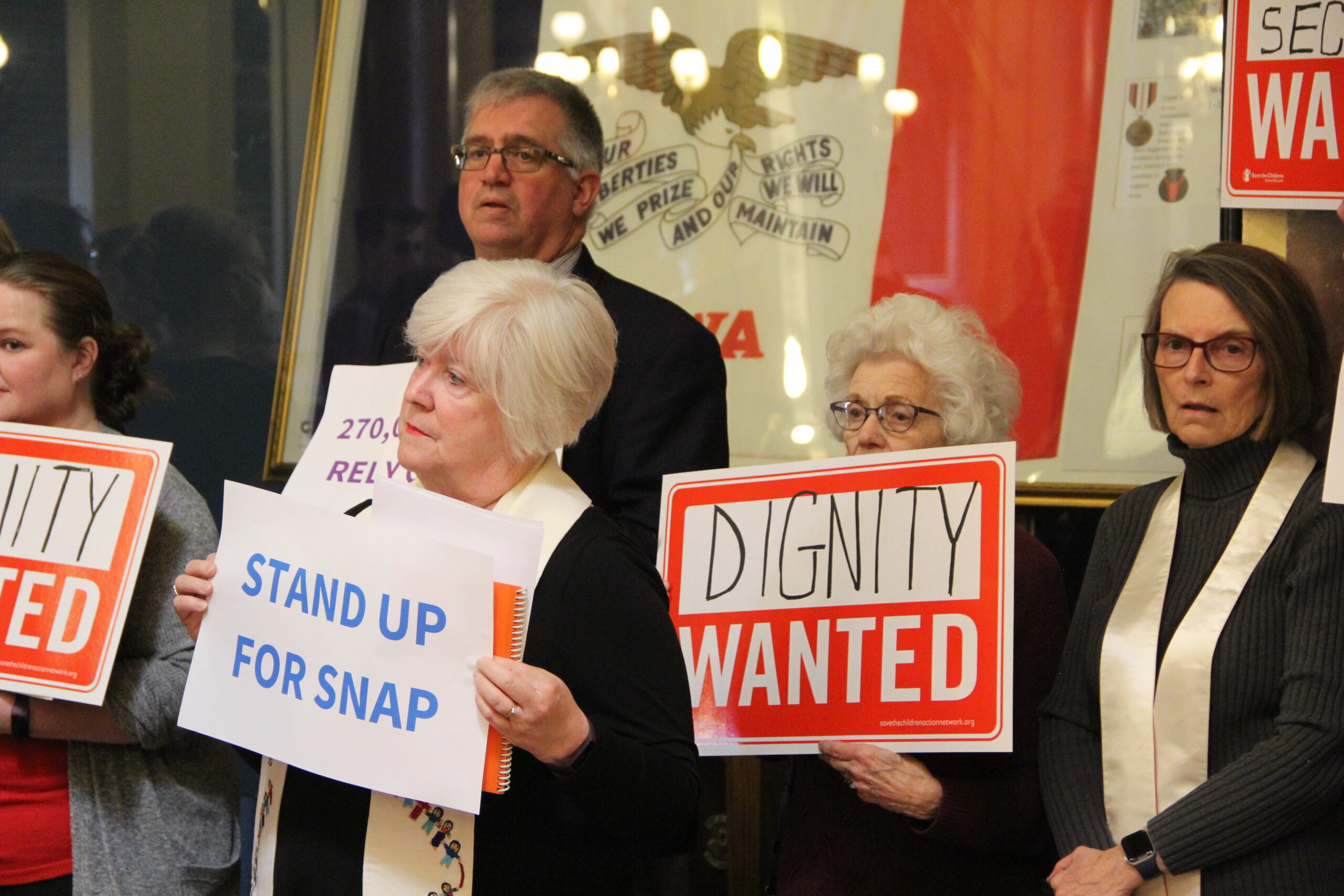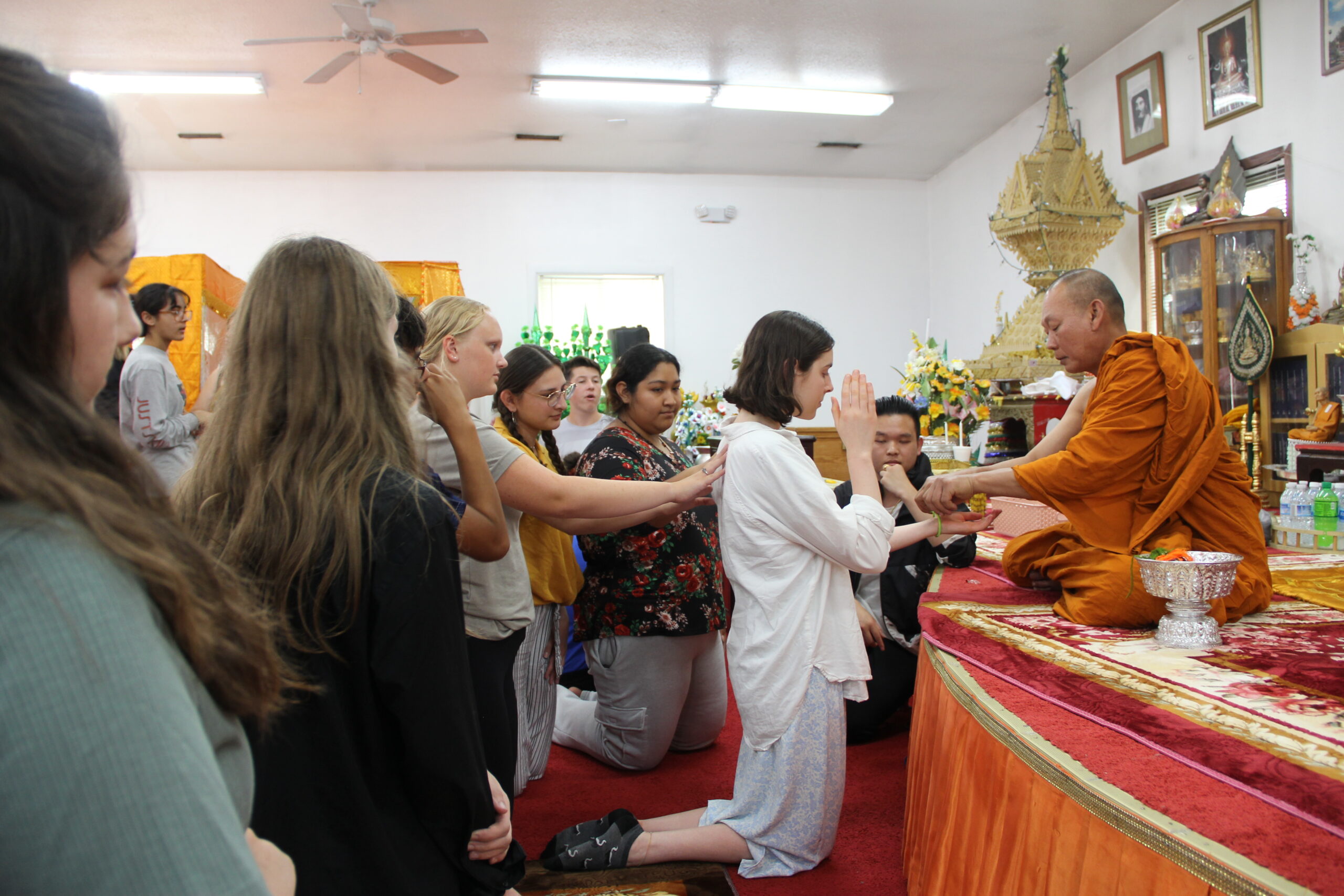Rising to meet the need

Becky Whitlow, Director of the DMARC Food Pantry Network describes herself as a bargain hunter. As the primary wholesale purchase for the network of 14 food pantry partners, mobile food pantry sites, and food delivery program, Whitlow has had her hands full. She finds herself spending almost two hours a day shopping around to keep our food costs low while maintaining the same quality options.
“Before the pandemic I was pretty much able to go to just 2-3 sources and get pretty much everything I needed at a reasonable price. Now I have to work a little harder at it. I’ve started working with 3-4 additional wholesalers in the last year to shop around for specific items,” said Whitlow, who will be celebrating her 12-year anniversary with DMARC in 2024.
As the number of individuals being assisted by the Food Pantry Network has increased, so has the added pressure on our warehouse and purchasing operations to keep up with the record volume. This is only accentuated by the increasing number of people a month who are utilizing a food pantry for at least one repeat visit a month.
The pandemic served as a paradigm shift in where DMARC’s food is coming from as the percentage of items being distributed is more and more likely to be purchased. In FY 18-19 over 1.8 million pounds or 36% of total items distributed by the food pantry network was purchased from wholesalers. This past fiscal year that number increased to 2.1 million pounds or 52% of the cost/value of all items distributed.
While cost of food has come down slightly from a year ago, much of what we are purchasing is still more expensive than 3-4 years ago because of the increase in freight cost. Everything from the cost of diesel to the cost of the metal to make the can has pushed prices up.
“I am much more aware now of whether an order is being shipped out of Illinois, Minnesota, or Indiana or is it being shipped out of New Jersey or California,” said Whitlow.
The changes in food packaging and processing has meant higher prices and less options. For example, Progresso soups previously had over 30 different kinds of soup available for purchase in bulk, but that has shrunk to as low as 12 options.
DMARC guarantees all partner food pantries a list of specific items: things like peanut butter or pasta. As the organization continues to spend nearly $200k on food a month many partners pantries are having to rely more on our inventory when those pantry staples aren’t available through other sources.
With all of this change Whitlow is still optimistic about DMARC’s ability to meet the need. This is especially true now with the capabilities of our warehouse facilities. After moving in spring 2022, ordering in bulk has become exponentially easier as we plan for 6 months out instead of 6 weeks.
“Previously we could’ve never could’ve taken a semi-load of canned fruit or pasta in one day and that saves us quit a bit of money. We might save 5,6, or $7000 by ordering in a larger quantity.”
Expanded fridge and freezer storage has also allowed for the warehouse to collect and safely store more large donations of food rescue or other bulk donations. Especially during the winter months, having 6 pallets of melons or 8 pallets of butternut squash donated helps provide more options while keeping costs down.
Using Advocacy to stand up for basic human needs

As Pastor Lee Roorda Schott walked into the Iowa State Capitol rotunda, she was taken aback. Eventually, she found herself surrounded by other faith leaders and community advocates from across the state – all standing in solidarity with their neighbors.
The press conference organized by DMARC and other anti-hunger organizations was called to share how Iowans would be affected by significant changes to the Supplemental Nutrition Assistance Program (SNAP) through Senate File 494.
“Whether or not we need those benefits personally, every one of us is directly affected by these changes, and the use of our tax dollars to put up roadblocks against our neighbors accessing assistance,” said Schott. “My humanity and my faith have made me a person who cares about my neighbors, and who looks for ways to bring justice, mercy, and good news to the poor.”
Schott served on the board of directors for DMARC more than a decade ago and has since stayed involved with the organization. In recent years that has meant getting more involved through advocacy work. Even though advocates face an uphill battle on some fronts, Schott is encouraged by what can happen when you show up in numbers.
“I’m grateful for the longtime influence DMARC has had in addressing hunger in the Metro. Faith communities make a difference through their financial and volunteer support, and through advocacy for policies and processes that would alleviate challenges that confront persons in poverty.”
Interfaith Engagement as an invitation

Going into the summer Audrey Martin was a little nervous, but still, excited to be participating in the Iowa Interfaith Youth Leadership Camp. Her faith journey had been a bit rocky and she knew an experience like this would require some vulnerability.
On her first night of camp, after getting settled, Martin joined other campers on the bus to visit the Iowa Sikh Association and Gurdwara in West Des Moines. After sharing a meal and stepping out of her comfort zone, the idea behind why Martin was here became more clear.
“I did not know what to expect from the camp as a whole and I did not know any of the other campers at that point, but that visit brought us so close together so quickly, and the Sikh community was so welcoming,” said Martin.
The five day experience is a partnership with the Comparison Project at Drake University and students stay on campus during the camp.
Part of the personal faith journey for students like Audrey was the creation of a digital storytelling video project. Each day’s discussions and site visits help deepen that exploration as campers join worship services, meals, and conversations with their peers and faith partners in the metro.
“As someone who has been in Catholic school my whole life, I never really had much exposure to other faith traditions. I had learned about many of them conceptually, but connecting with members of these communities in person was an entirely different experience,” Said Martin.
For Martin, the search for interfaith engagement and the bonds made with campers continue today. Martin’s advice for future campers: “Get out of your comfort zone: try the food, talk to the people, and definitely dance at the bhajan!”
